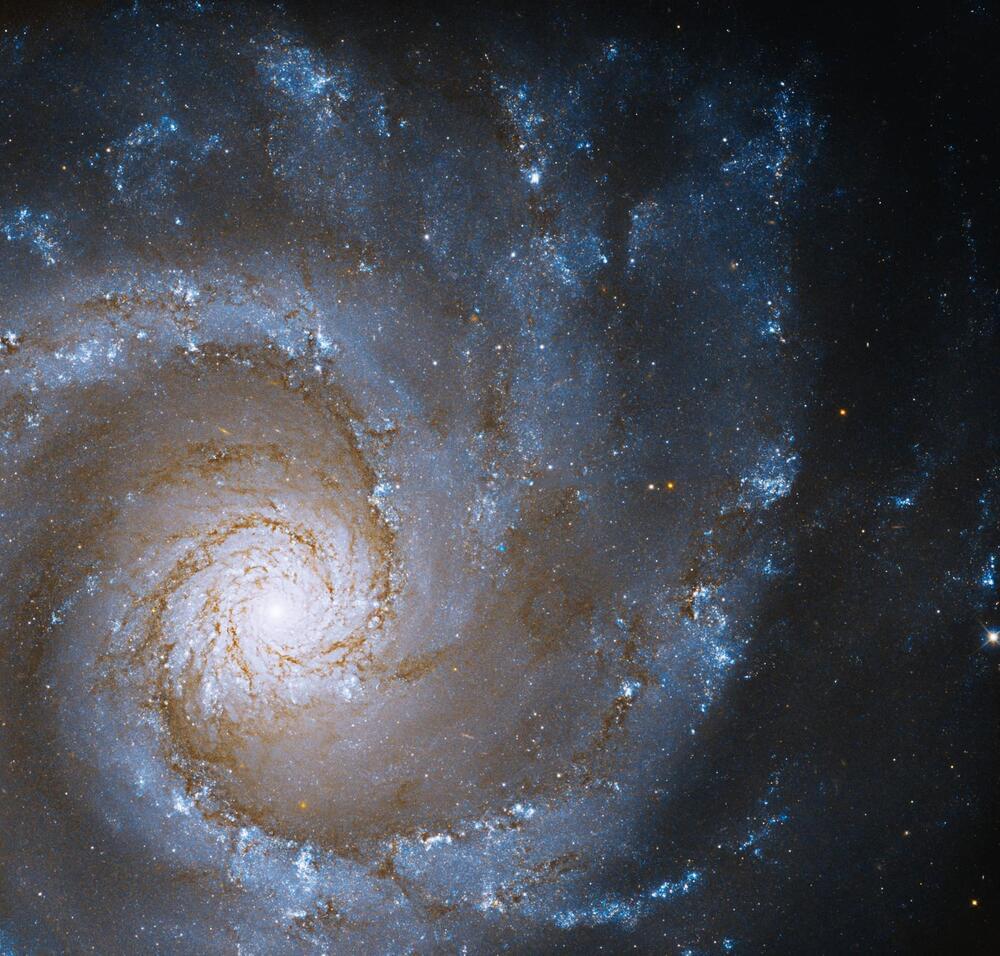An image captured by the Hubble Space Telescope and shared by NASA this week shows the most stunning of spiral galaxies: A Grand Design Spiral called NGC 3,631, given that designation because of its clear, prominent arms and highly organized spiral structure. This ideal spiral galaxy is located 53 million light-years from Earth in the constellation of Ursa Major and is seen face-on from Earth to give a perfect view of its pleasing structure.
The image was created using data from two of Hubble’s instruments, the Wide Field Camera 3 and Advanced Camera for Surveys. The Advanced Camera for Surveys is a Hubble camera used primarily for capturing data in the visible light range, which is the same range seen by the human eye. It was installed onto Hubble in 2002. The Wide Field Camera 3 is a newer instrument, installed in 2009 as an upgrade to the older Wide Field and Planetary Camera 2. The Wide Field Camera 3 is used to capture ultraviolet and infrared light as well as to detect visible light.
This image combines both visible light and infrared data. The blue shades represent light which is in the blue visible light wavelength, while the orange represents the infrared data. Looking in the infrared is helpful to look through clouds of dust that are opaque in visible light, and it also maps out the distribution of heat as warm material gives off infrared light.










Comments are closed.